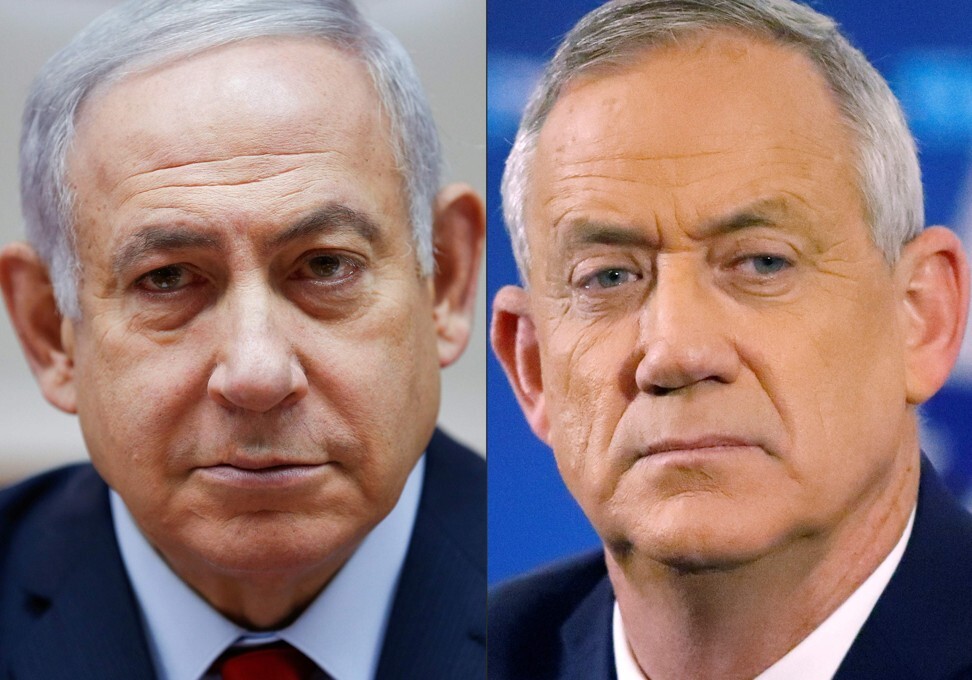As Israel moves to annex West Bank territory, how will international community respond?
- Annexation is illegal under international law, but while the US is likely to do nothing if Israel presses on, the EU has warned it would ‘act accordingly’
- Meanwhile, Palestinians in Area C are likely to be offered Israeli permanent residency, but will face a constant threat of expulsion

The international preoccupation with the coronavirus pandemic has created an ideal opportunity for Israel to test the limits of the international community’s support for the two-state solution.
With domestic and international conditions now in its favour, the Israeli government is on the verge of formalising one of the most historic steps in its history: the annexation of 30 per cent of the West Bank – excluding East Jerusalem, already annexed by Israel, but including the Jordan Valley.
Domestically, the stage is set due to a little-reported inclusion into the national unity government deal signed last week between Prime Minister Benjamin Netanyahu and opposition leader Benny Gantz.
Paragraph 29 of the agreement states that as early as July 1, the Israeli government may introduce legislation on implementing the agreement with the United States – as outlined in the “Deal of the Century” – on the “extension of sovereignty” to Area C.
Although both coalition partners must agree on all legislation, the annexation clause also provides that the particular Bill cannot be blocked by Gantz from going to the Knesset for a vote.
To cobble together the unity government, Netanyahu has had to deal with, and pander to, the religious right in Israel. The approximately 325,000 settlers that live in the West Bank in illegal settlements form a powerful voting bloc.
Many of these settlers can be considered Judea and Samaria maximalists – they believe the (re) conquest of all of the West Bank should be realised by any means necessary.
The US also appears to have cleared the decks for such a move. Last week, Secretary of State Mike Pompeo signalled America would remain hands-off by describing annexation as an “internal Israeli decision”.
But on April 27, a State Department spokesman confirmed that the US was prepared to recognise Israeli actions to extend sovereignty and to apply its laws to areas of the West Bank outlined in President Donald Trump’s “Deal of the Century”.
How will the international community respond to this flagrant violation of international law, and what will become of the 300,000 Palestinians that live in the areas that will be annexed to Israel?
Annexation is illegal under international law as it is an illegitimate means of territorial acquisition. There are numerous examples of illegal annexations around the world, most recently, Russia’s annexation of Crimea. In response to that action, the international community imposed economic sanctions on Moscow.
While the US is likely to do nothing if Israel presses ahead with its own action, the European Union could act. Its foreign policy chief, Josep Borrell, has already warned that the 27-member bloc “will act accordingly” should annexation come to pass, and it is worth noting that the EU is Israel’s largest trading partner.
Despite suggestions among some political players in Israel that annexation ought to bestow Israeli citizenship upon Palestinians in those parts that it will annex, the most likely scenario is that the move would render all residents there, including Palestinians, permanent residents of Israel. The numbers do not permit otherwise.
Israel cannot afford to grant citizenship and voting rights to so many Palestinians. The introduction of such a large Arab constituency, particularly with Israel’s proportional representation system, will noticeably increase the power of the modest but growing Arab bloc – the Joint List – already in the Knesset.
Annexation would politically weaken the right if it results in citizenship being extended to Area C Palestinians. Permanent residency is therefore more likely to be offered, although it is not clear whether the affected Palestinians would apply for it. As with East Jerusalem Palestinians, a path to Israeli citizenship would be legally available, but difficult to realise in practice.
For those Palestinians who do take up permanent residency, it will be anything but permanent. Those falling foul of residency rules will become embroiled in costly, stressful, and time-consuming litigation within Israeli courts.
Those found in violation of residency rules would have no choice but to move into one of the 165 Palestinian reservations that now constitute Areas A and B of the West Bank.

Under the guise of official legal processes, the status of Area C Palestinians will be liable for cancellation upon the slightest transgression. Israeli officials will bring the full force of its surveillance apparatus to watch and wait for any misstep or violation as a pretext to expel Palestinians from Area C.
For example, should phone-tracking technology – now in vogue in the fight against Covid-19 – detect that an Area C Palestinian is spending an unacceptable amount of time with his family in Areas A and B, that may strengthen a case for cancellation of his residency rights.
Israel will play the long game with this cohort. It will squeeze them, stress them, and force their children to head overseas for better life prospects.
That is the end game. Israel will give its newly-acquired residents’ social benefits with the left hand and hold the Sword of Damocles above them with the right. The question is, what is the rest of the world going to do about it?
Victor Kattan is a Senior Research Fellow at the National University of Singapore’s Middle East Institute. Andrew Dahdal is an Assistant Professor of Law at Qatar University.
Help us understand what you are interested in so that we can improve SCMP and provide a better experience for you. We would like to invite you to take this five-minute survey on how you engage with SCMP and the news.
